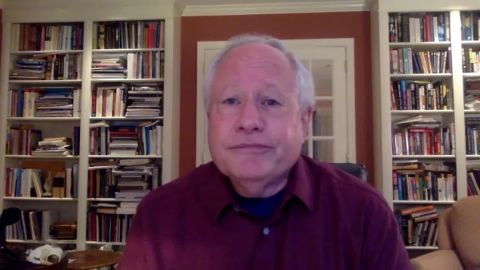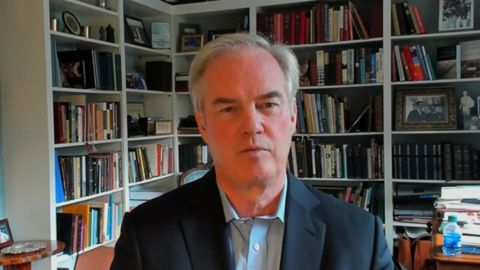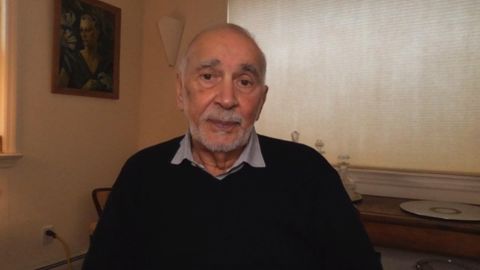Read Transcript EXPAND
FRANK LANGELLA, ACTOR: And someone asked me last night why I didn’t give him some redeeming quality, you know, something that would make you see him in a different way, and my answer to that is, if Aaron had written me a scene at home petting my dog or playing with my grandchildren, I could have done that. But I don’t think you can play a man like this who was so obviously and completely corrupt and so clearly out to stop these men any way he could without risking being hated. And I think my job is to make sure you hate me in this film.
CHRISTIANE AMANPOUR: Oh, yes. We do. We do, Frank Langella.
LANGELLA: It’s very interesting, Christiane. This morning, I got this from a federal judge, and I want to read it to you. It’s very brief. There are many — a federal prosecutor. There are many senile judges who rule their courtrooms in a despotic way. It is an awful part of our practice. It was deeply cathartic for me to see it on the screen. And that’s — I’ve heard a lot of that from lawyers about how Julius Hoffman and — was and where are we witnessing that today. Totally without conscience and without any scruples.
AMANPOUR: Well, and it’s — you see it all throughout and you obviously do a brilliant job of portraying that. Let’s play this little clip because this is about the jurors. There were two jurors that the defense believed were more sympathetic to the Chicago 7. And then, what do you do, you call in juror number six. Here’s the clip.
(BEGIN VIDEO CLIP)
LANGELLA: Your parents received this note this morning in their mail. They called the police, as they should have done. I’d like you to take the note and read it out loud.
UNIDENTIFIED FEMALE: My parents?
UNIDENTIFIED MALE: Your honor —
LANGELLA: Please read the note out loud.
UNIDENTIFIED FEMALE: We’re watching you.
LANGELLA: And you see who signed it?
UNIDENTIFIED FEMALE: The Panthers.
LANGELLA: And you understand that to mean the Black Panthers, don’t you? And you understand the defendant, Bobby Seale, is the head of the Black Panthers.
UNIDENTIFIED MALE: Judge, you can’t —
LANGELLA: He is the chairman of the Black Panther party. Do you still feel that you can render a fair and impartial verdict?
(END VIDEO CLIP)
AMANPOUR: I mean, it really is outrageous. And clearly, afterwards, they, the Black Panthers, claimed that it was the prosecution who had actually, you know, put those notes around. I don’t know exactly how it happened in real life, but you were there putting your thumb, as the judge, on the scale. Is that what you think — well, I mean, you do believe, obviously, that Julius Hoffman did that, although, he said he didn’t. He said, I did the right thing. I have no regrets about what I did during that trial.
LANGELLA: Where have we heard that before? And where are we hearing it now?
About This Episode EXPAND
Christiane speaks with former Federal Election Commission head Trevor Potter about supporting voter access. She also speaks with actor Frank Langella about his new film “The Trial of the Chicago 7.” Walter Isaacson speaks with conservative political analyst Bill Kristol about whyhe believes his former party could become obsolete if its members continue to back this administration at all costs.
LEARN MORE


